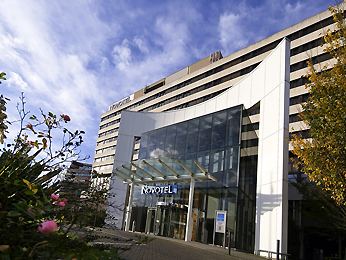HOSPITALITY
|
FINAL TASK/ MISSION You welcome members of the Washington tourist board who visit your hotel. Promote your hotel (location, general facilities, room facilities, services) and Martinique as a destination. |
Describing a hotel
| SÉANCE 1: GIVING INFORMATION ABOUT HOTEL FACILITIES AND SERVICES |
Anticipation
A visit to the different parts of a hotel.
Describe the hotel and say the facilities and services that it offers.
http://www.accorhotels.com/gb/hotel-0737-novotel-london-west/index.shtml
Customer Information (p6.HR2)
Listen and complete the sentences.
1.How ………………………………. From the airport to the Grand Marina?
2.There’s a shuttle bus …………………………………. The airport direct …..the hotel.
3.Where does it ………………………………………………?
4.And ………………………………………………does it take?
5.Great. Um…………………………………………………………business services?
6.It’s …………………………………………………….ground floor, opposite reception.
7.I’d like to …………………………………………… a car for a few days.
8. Just ………….. the ……………………………………………desk, next to reception….
STRUCTURES 1.Answer the following questions.
1.Giving the information such as landmarks that serves as a guide) on where the Squash Hotel can be found. The hotel is located on the outskirts (not in the center of the city)
2. Identifying how far the Squash Hotel is from a certain point of origin, for example from the airport.
3. Say that there is a bus which comes at the airport for the passengers. We offer a free airport transfer to all our guests.
4.Say that the guests can have a bus to downtown. There’s a shuttle bus from the hotel direct to downtown.
II).Put the words in the correct order to make useful information for guests. (workbook ex4. p.6)
1.The arrivals / outside / rank / the taxi / is / area
2.the airport / the / transfer / offers / free / a / hotel
3.airport / the / transfer / offers / free / a / hotel
4.rooms / have / access / all the / Internet
5.arrange / for you/ car rental / the / reception / reception / in / desk / will / that
6.centre / there’s / pool / a fitness / and / on site / a swimming
7.all the / showers / have / separate tubs / bathrooms / and
8.the Indian restaurant / recommend / at the end / I can / the street / of
II) HOTEL FACILITIES
1.Look at the picture and complete the sentences.
Use the prepositions of location.
See scanned ( HR2wbp.6 page 7)
2.Match the words to make hotel facilities and services. (HR2wbp.6)
- business a. stop
- currency b. access
- hair c. bus
- shuttle d. centre
- tourist e.transfer
- bus f. rental
- car g.salon
- gift h. space
- Internet i.attraction
10. taxi j.exchange
11. airport k.shop
12. parking l.rank
———————————————————————————————-

